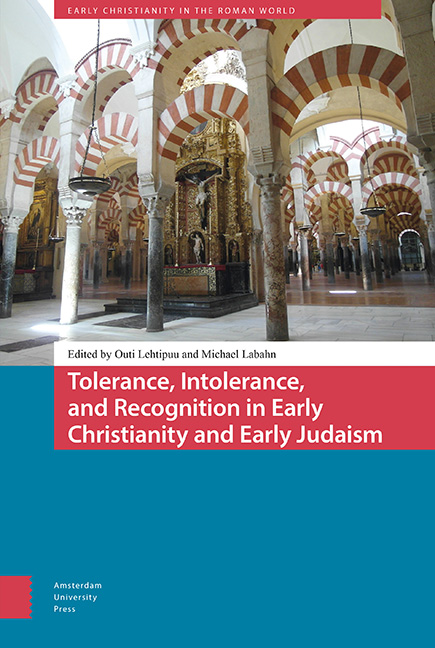7 - Rabbinic Reflections on Divine–Human Interactions: Speaking in Parables on the Miracle of Pregnancy and Birth
Published online by Cambridge University Press: 16 July 2022
Summary
Abstract
This article approaches the question of tolerance by focusing on the topic of miraculous births, shared by both Jews and Christians. An analysis of chapter 14 of Leviticus Rabbah , dated to the first half of the fifth century, reveals contacts between the rabbinic text and Origen's homilies on Leviticus, which elaborate on the same biblical texts. Jews and Christians shared the idea of God's unquestionable power to perform miracles, but whereas the Christian discourse on miraculous birth in general addressed the birth of Jesus, the rabbis diverted the discourse to all human births.
Keywords: miraculous births; tolerance; Leviticus; Origen; theology
Discursive Spaces of Jews and Christians: Sharing Leviticus
The theme of miraculous birth has since ancient time intrigued human imagination and sparked tales of wonder. In the eastern part of the Mediterranean of Late Antiquity this theme occupied an especially central position in learned as well as popular discourses. The life history of Jesus as told in two of the Synoptic Gospels – Matthew and Luke – begins with a miraculous birth, possibly reminding audiences acquainted with the Hebrew Bible of the tale of the birth of Moses. The details of the story remain veiled enough to promote discussions around where, how and by whom the holy seed was introduced into the womb of Mary.
The dogma of the Virgin Mother of God, theotokos , was declared only in 431 ce at the Church Council of Ephesus. Prior to that, popular imagination, as well as literary creativity, elaborated around the theme in works such as the apocryphal Protoevangelium of James also known as the Infancy Gospel of James . Demonstrably also Jews were acquainted with the theme of the virgin birth and some of the texts of their sages, known as the rabbis, echo their involvement with this topic.
We suggest that the idea of miraculous birth was a shared theme of discourse that fostered dialogue as well as polemics among Jews and Christians in the early Byzantine period in Palestine and its environs. An analysis of a text expressing Jewish deliberations on this topic in chapter 14 of Leviticus Rabbah , pertaining to Lev 12:2 (dated to the first half of the fifth century ce) is hereby proposed.
- Type
- Chapter
- Information
- Publisher: Amsterdam University PressPrint publication year: 2021



